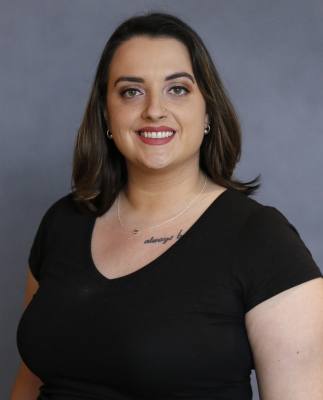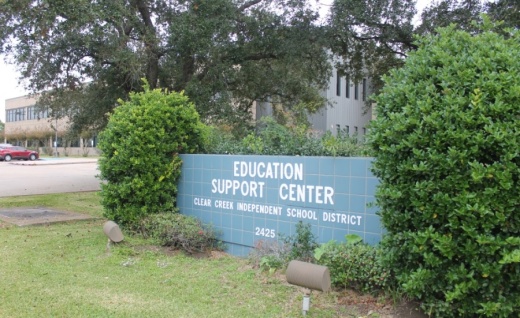Clear Creek ISD’s board of trustees held a workshop Dec. 7 to discuss how district leaders were progressing with specific superintendent targets, all meant to encourage students and staff to “achieve, contribute and lead with integrity.”
The targets—approved by the board Sept. 28—largely address how the superintendent can work with district leaders to fuel the growth and maintenance of high-achieving, service-oriented students and staff.
At one of his final board meetings before his Dec. 31 departure from CCISD, Superintendent Greg Smith said the pandemic required reimagining customs, from procedures for the first day of school to graduation festivities, but the remote nature of some activities led to their unprecedented success.
Parent engagement, for example, is at “levels unseen before” since forums are being livestreamed, he said. Learning has become more flexible with virtual time-saving measures and incorporation of online, asynchronous learning, Smith added. Still, he acknowledged the district could continue improving upon the experiences it provides to students and staff.
“We've got room to improve, and that's a great thing to be able to work on throughout the course of this year,” he said Dec. 7.
Here are several takeaways about the 2020-21 school year at CCISD based on details from district leaders about superintendent target progress.
Equity audit complete by March
One target approved by the board involves initiating an equity audit, which Smith said is ongoing and will be complete by approximately March.
The district is already sending information to the company conducting the audit, and the audit is expected to be completed in eight to 11 weeks, Smith said Dec. 7. It will cost the district $14,300.
Standards used by the auditors relate to governance and control, established expectations for students, consistency in developing and implementing various initiatives, and effective use of feedback and productivity.
The audit will largely focus on student and employee access to both support and opportunities, district leaders said. Chief Technology Officer Robert Bayard spoke during the meeting about one equity advancement with the district’s newly completed 1-1 device program. After the district's purchase and distribution of 12,000 laptops during the 2020-21 school year, every student in CCISD now has access to their own remote learning device.
CCISD can choose which recommended reforms to implement from the audit, and the audit itself will not require the administration of any new internal surveys. There will, however, be a 10-person CCISD administrator focus group, Smith said.
Incoming Superintendent Eric Williams, who comes from Loudoun County Public Schools in Virginia, was the sitting superintendent during LCPS’ equity audit. Williams said in a December interview with Community Impact Newspaper the audit can be used to inform conversations as CCISD considers its next steps.
Trustee Scott Bowen observed the audit in LCPS appeared to leave the district open to legal liability; leaders said the chance of that happening in CCISD is very small. Drawing on experience from navigating the community pushback to Williams’ nomination, Bowen and newcomer trustee Michelle Davis also asked for the phrase “social justice” to be avoided in the audit, as the two feel the phrase is a “big red flag” in terms of alignment with community values.
Smith, in response, said the audit will be done with caution and added the district focuses on “hand-ups, not handouts.” Deputy Superintendent of Curriculum and Instruction Steven Ebell said the group conducting the audit has worked with CCISD for the last 15 years and is nonpartisan.
“They are not trying to push a political agenda one way or another,” he said. “We certainly wouldn't be doing business with them if they did.”
Safety during COVID-19
Director of Parent Assistance Tony Davila said this fall, the top type of call coming into the parent assistance center was anything COVID-19 related. These were usually questions about why a child was instructed to quarantine, feedback about the quarantines or a complaint related to the safety protocols in general, he said.
CCISD’s districtwide COVID-19 positivity rate is significantly lower than the rate throughout Texas. As of the publication of this article, about 0.43% of CCISD’s on-campus students and employees are listed as active COVID-19 cases. For the week ending Dec. 13, about 90,000 students and staff across the state were positive for COVID-19 out of the roughly 3.7 million total students and staff in schools for approximately a 2.45% positivity rate.
Director of Safe Schools Brian Palazzi and Coordinator of Health Services Marina Keeton said, in their communication with local health officials, the officials saw the visibility of adults following protocols in CCISD as a defining factor for the district’s relative success with staying open safely.
“People around the country are contacting us [and asking], ‘How are you doing this?’” Palazzi said.
Climate, performance among students, staff in fall 2020
In keeping with district goals to have an intentional focus on security and relationship-building, educators, parents and students in grades four through 12 recently had the chance to participate in a student climate survey. The survey, which Smith said took about 20 minutes to complete, was conducted by a third-party researcher from Dec. 7-18. Topics included safety, instruction, communication and relationships, he said.
The coronavirus pandemic has presented numerous challenges as teachers navigate remote learning, and a districtwide assessment showed anywhere from a third to half of elementary students reading below their appropriate reading level during 2020. In 2019, 26% of elementary learners were below reading level.
On average, 44% of elementary students are below reading level, per the assessment; 48% of elementary learners are below their reading level in brick-and-mortar classrooms, while the percentage reduces to 32% for those in the online Clear Connections program.
“We've got to continue to push through ... and make up our distance here,” Assistant Superintendent of Elementary Education Holly Hughes said during the meeting.
Grade distribution for secondary students shows online learning is proving to be a challenge for them also, Assistant Superintendent of Secondary Education Karen Engle during the meeting. However, Engle said the number of CCISD students who participated in Advanced Placement exams in 2020 is a bright spot: The number of AP exam takers, as well as the mean score students received on the tests, was almost the same in 2019 and 2020.





